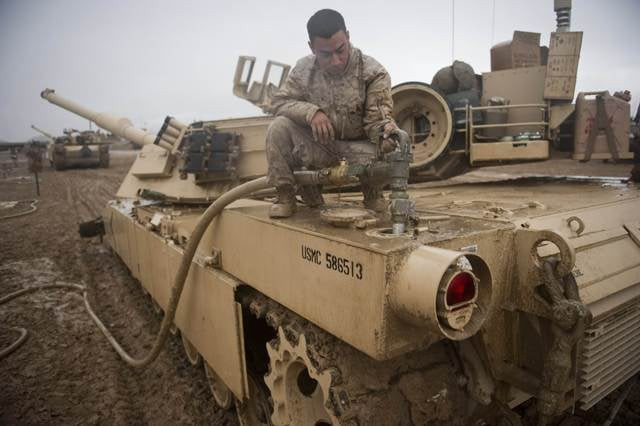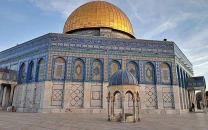Troubled neighbourhood: Transition to Afghan security forces begins
Ceremony attended by head of national transition committee, ministers of interior, defence, public works.

Afghanistan began taking on responsibility for the country’s security from Nato soldiers on Sunday starting a process designed to leave the country free of international combat forces by 2014.
“A ceremony was held in the Bamyan police headquarters today to mark the official transition of responsibilities from foreign to Afghan forces,” said interior ministry spokesman Siddiq Siddiqi. Seven parts of the country will be transitioned over the week and could take up to two years to complete. Western officials say this process in the seven areas – which include the cities of Mazar-i-Sharif, Herat and Lashkar Gah – will be closely monitored.
“Transition is a condition-based process that is now entering its implementation phase,” said one Nato official who would not give his name. “The Isaf and the Afghan government will regularly monitor the on-ground situation to ensure enough progress so that transition can be completed.” The relatively peaceful central mountainous province of Bamyan is a devoutly anti-Taliban area populated by the ethnic Hazara minority and home to two sixth-century Buddhist statues. These statues were blown up by the Taliban during their reign.
Siddiqi said the Bamyan ceremony was attended by the head of the national transition committee, former finance minister Ashraf Ghani, along with national ministers of interior, defence and public works.
The deputy head of Afghanistan’s intelligence agency also attended, along with New Zealand’s ambassador to Kabul, representing his troops who have been based in the area.
“The Afghan officials expressed their preparedness to step up their efforts to ensure security in the province and implement more development projects,” said Siddiqi.
Transition criticised
High levels of illiteracy and attrition among the army and police, and no visible signs of change in many of the seven areas, have made many skeptical of the process, particularly in the still-restive areas of Lashkar Gah in southern Helmand, and Mehtar Lam in the east.
“Transition is propaganda. There is a big war going on in Helmand so how can you transition? If Nato leaves Helmand, everything will be in a mess in just one day,” said deputy speaker of parliament and a fierce government critic, Ahmad Behzad.
Playing down expectations as Afghans take control, he added: “Nothing will change the day before and the day after ... The real efforts will be seen towards the end.”
Violence turns wedding sour
Meanwhile, unidentified gunmen opened fire at a wedding party in northern Afghanistan overnight, killing at least two guests and wounding seven others, an official said on Sunday. Police have launched an investigation to find out who attacked the ceremony in Baghlani Jadid district in the northern province of Baghlan, an area where the Taliban and other insurgents are known to be active, the official said. It was not known who was behind the shooting.
Also, a British soldier has been shot dead in southern Afghanistan, the 376th British serviceman to die there since 2001, the Ministry of Defence announced on Sunday, saying a probe was under way. The soldier was on a routine patrol on Saturday with members of the Afghan National Army in the Nahr-e-Saraj district of Helmand province. The patrol came under light arms fire and the soldier received a fatal gunshot wound.
Published in The Express Tribune, July 18th, 2011.



















COMMENTS
Comments are moderated and generally will be posted if they are on-topic and not abusive.
For more information, please see our Comments FAQ